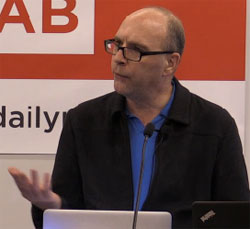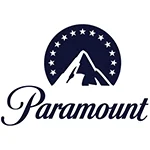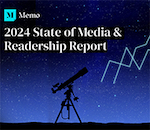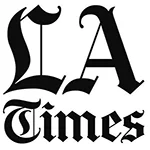Do newspaper readers want to read about "puppy dogs" or real news? was the topic Sept. 21 when a Daily News panel examined advertiser-initiated editorial content that looks like it was written by the news staff.
 Rosen Rosen |
NYU journalism Prof. Jay Rosen, moderator, defined the issue at the start by playing a videotape of Sam Zell, who controls the Tribune Co., replying to a female staffer of The Orlando Sentinel, owned by the Tribune, who said at a meeting in 2008 that “What readers want is puppy dogs but we need to inform the community.”
Her comment came after Zell said that he wants to “make enough money so I can afford you. It’s that simple. Focus on journalism that our readers want and therefore generate more revenue.”
He was taken aback by the question and told the staffer she was showing “classic journalistic arrogance” and ended the exchange.
Rosen said the dialogue was highlighted on the Aug. 7, 2016 show of HBO’s John Oliver, who has been an ardent critic of any mixture of editorial and advertising.
Oliver “Nailed” Plight of Newspapers
Washington Post columnist Margaret Sullivan said Aug. 8 that the 19-minute segment “precisely nailed” what’s happening to newspapers--“shrinking staffs, the abandonment of important beats, the love of click and bait over substance, the deadly loss of ad revenue, the truly bad ideas that have come to the surface out of desperation, the persistent failure to serve the reading public…media’s addiction to content that generates digital traffic, particularly ever-weirder stories about cats.”
As of Sept. 25, the segment had been viewed 6,418,707 times and had drawn 8,361 comments. Sullivan noted the segment was “widely read and talked about.”
An 11-minute segment Aug. 3, 2014 in which Oliver likened “branded” content to “botched heart surgery” or dipping Twizzlers in guacamole, had been viewed 7,522,151 times and drawn 55,024 comments as of Sept. 25.
Rosen said that a few minutes later Zell said, “F..k you!” to another Sentinel staffer.
Several media covered the Zell outburst including usblastingnews.com which said “Journalists are slowly being forced to concentrate on what gets clicks rather than important news. And as Sam Zell suggests, that often includes stories about cute animals that are essentially non-stories.” A story about political corruption may get less attention than a story about “a cat that looks like a raccoon,” says the site.
Sentinel Staffer “Deeply Confused”
Rosen said the comment by the staffer about “puppy dogs” vs. “the community” was “a deeply confused statement.”
“It was a common attitude back then for many years,” he said. “Think about it, if readers just want puppies then how can you inform them about the community? The readers are the community. They’re the customers. If they don’t want the product, then how can the company continue to make it? There’s a fallacy there in that attitude that the journalist confronting Sam Zell is not aware of. If your job is to supply the community with important news about serious issues, how will you do that job if what readers want is puppies and kittens? It is impossible. So I think that attitude is a relic of a period that is over.”
Journalists in the past did not have to “worry about the business side” but that is no longer the case, he said. That attitude “infantilized” the newsroom “that did not have to worry its pretty little head about the business side,” he said. “But this did not give it a seat at the management table which it now has.”
“Wall Is Down”
“The wall has come down between business and editorial,” he added.
Panelist Priya Ganapati, Quartz product designer, said, “I’m talking to editors every day. I’m in all the meetings, so I’m part of the conversation. It’s very collaborative and it’s a conversation between different people who understand, ‘I have to know what I’m selling.”
Quartz, a digital global news medium owned by Atlantic Media Co., publisher of The Atlantic, National Journal and Government Executive, has 175 staffers. A current chart on Quartz shows that “Americans with a great/fair amount of trust in media” fell from 70% in 2005 among Democrats to 52% currently, and among Republicans, from 53% in 1998 to 12% currently. The average is around 30%.
Panelist Kate Ward, editor-in-chief, Bustle, which has an audience of tens of millions of women monthly, said newsrooms must know their audiences in order to sell their product. Creativity is important when it comes to product and connecting with Bustle’s target audience.
Poynter Promotes “Native Advertising”
The Poynter Institute is hosting a week-long tour starting Nov. 14-15 in Washington, D.C., that will cover “new strategies for sustaining the business of journalism” including “How to optimize native advertising.”
Price for the full tour is $7,000 and includes five nights of accommodations, meals and ground transportation during the tour. Tour price for D.C. is $4,200 and for New York, $5,200.
Quartz is among the participants. Arthur Gregg Sulzberger, associate editor, New York Times, will speak. Also participating from NYT are Kinsey Wilson, editor for innovation and strategy and executive VP, product and technology.
Other participants include Emilio Garcia-Ruiz, managing editor, digital, Washington Post; Edward Roussel, chief innovation officer, Dow Jones; Google Products including AMP; USA Today/Gannett; CNN Digital and Pew Research Center.


 Trump Media & Technology Group today reported a $58.2M net loss on $4.1M in 2023 revenues, a disclosure that drove its stock price down 22.6 percent to $47.96.
Trump Media & Technology Group today reported a $58.2M net loss on $4.1M in 2023 revenues, a disclosure that drove its stock price down 22.6 percent to $47.96. Barry Pollack, an attorney at Wall Street’s Harris St. Laurent & Wechsler, has registered Julian Assange as a client with the Justice Dept. “out of an abundance of caution.”
Barry Pollack, an attorney at Wall Street’s Harris St. Laurent & Wechsler, has registered Julian Assange as a client with the Justice Dept. “out of an abundance of caution.” Paramount Global to slash 800 jobs in what chief executive Bob Bakish calls part of an effort to “return the company to earnings growth"... Rolling Stone editor-in-chief Noah Shachtman is exiting at the end of the month due to disagreements with chief executive Gus Wenner over the direction the magazine is taking... The New York Times broke the $1 billion barrier in annual revenue from digital subscriptions in 2023... Press Forward is investing more than $500 million to strengthen local newsrooms.
Paramount Global to slash 800 jobs in what chief executive Bob Bakish calls part of an effort to “return the company to earnings growth"... Rolling Stone editor-in-chief Noah Shachtman is exiting at the end of the month due to disagreements with chief executive Gus Wenner over the direction the magazine is taking... The New York Times broke the $1 billion barrier in annual revenue from digital subscriptions in 2023... Press Forward is investing more than $500 million to strengthen local newsrooms. The majority of news articles are read within the first three days of publication, according to a recent report.
The majority of news articles are read within the first three days of publication, according to a recent report. The Los Angeles Times gives pink slips to 115 people or 20 percent of its newsroom staff... TIME is also laying off about 30 employees, which is approximately 15 percent of its editorial staff... The Baltimore Banner, which was launched by Stewart Bainum in 2022 after he failed to buy the Baltimore Sun, added 500 subscribers per day in the three days following Sinclair Broadcast Group's deal to purchase the Sun.
The Los Angeles Times gives pink slips to 115 people or 20 percent of its newsroom staff... TIME is also laying off about 30 employees, which is approximately 15 percent of its editorial staff... The Baltimore Banner, which was launched by Stewart Bainum in 2022 after he failed to buy the Baltimore Sun, added 500 subscribers per day in the three days following Sinclair Broadcast Group's deal to purchase the Sun.


 Have a comment? Send it to
Have a comment? Send it to 
No comments have been submitted for this story yet.